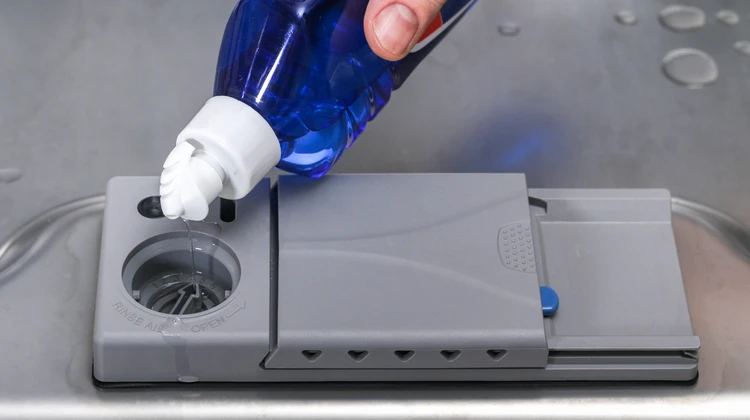Induction cooktops have rapidly gained popularity among homeowners and kitchen enthusiasts due to their energy efficiency and precise temperature control. As a subject matter expert with over a decade of industry experience, I can attest to the transformative impact these appliances have had on modern kitchens.
Disclaimer: As an Amazon Associate, I earn commission from qualifying purchases.
Let’s delve into what makes induction cooktops unique and explore the best cookware options to maximize their benefits.
What is an Induction Cooktop?
Induction cooktops operate on the principle of magnetic induction, where an electric current passes through a coil beneath the cooktop surface, generating a magnetic field. This field induces a current in the cookware, which in turn produces heat directly within the cookware itself. According to Energy Star, induction cooktops are up to 90% energy-efficient, compared to the 65-70% efficiency of traditional electric cooktops.
Consumer Reports highlights that induction cooktops offer unparalleled precision in temperature control, making them ideal for tasks that require exact heat levels, such as cooking delicate sauces or melting chocolate. The magnetic field only heats the cookware, not the cooktop surface, which remains cool to the touch, adding an extra layer of safety.
Benefits of Using an Induction Cooktop
Induction cooktops offer a myriad of benefits that make them a superior choice for many kitchens. One of the most significant advantages is their faster heating times. A study published in the Journal of Applied Energy found that induction cooktops can boil water up to 50% faster than conventional electric or gas stoves. This efficiency translates into energy savings and quicker meal preparation times.
Another benefit is the precise temperature control. Induction cooktops allow for more accurate heat adjustments, which is crucial for cooking techniques that require specific temperatures. Additionally, induction cooktops are safer due to their cool-to-touch surfaces, reducing the risk of burns. They are also easier to clean, as spills do not burn onto the surface.
However, it’s essential to mention a potential drawback: induction cooktops require compatible cookware. Not all pots and pans will work on an induction cooktop, which can be a limitation for some users.
What Makes Cookware Compatible with Induction Cooktops?
Induction cooktops require cookware made from ferromagnetic materials, such as cast iron or magnetic stainless steel. These materials contain iron, which allows them to interact with the magnetic field generated by the cooktop. To test if your cookware is induction-compatible, you can use a magnet. If the magnet sticks to the bottom of the cookware, it is suitable for induction cooking.
Manufacturers like All-Clad and Le Creuset provide guidelines for selecting induction-compatible cookware. It’s crucial to choose cookware with a flat bottom to ensure even heat distribution and stability on the cooktop surface.
Types of Cookware Suitable for Induction Cooktops
Several types of cookware are suitable for induction cooktops, each with its unique features and benefits. Cast iron is a popular choice due to its excellent heat retention and durability. However, it can be heavy and requires seasoning to maintain a non-stick surface.
Stainless steel with a magnetic base is another excellent option. It is durable, easy to clean, and resistant to corrosion. Brands like All-Clad offer high-quality stainless steel cookware specifically designed for induction cooking. Enameled cast iron, such as Le Creuset, combines the heat retention of cast iron with the convenience of a non-stick surface, making it a versatile choice for various cooking tasks.
Comparison of Different Cookware Materials
| Material | Pros | Cons |
|—————————|———————————————————————-|———————————————————————-|
| Cast Iron | Excellent heat retention, durable | Heavy, requires seasoning |
| Stainless Steel | Durable, easy to clean, resistant to corrosion | Can be expensive |
| Enameled Cast Iron | Heat retention, non-stick surface | Heavy, can chip if not cared for properly |
Essential Cookware Pieces for Induction Cooktops
When equipping your kitchen with induction-compatible cookware, there are several essential pieces to consider. A good-quality induction-compatible pot is crucial for boiling water, cooking soups, and stews. Look for a pot with a heavy base to ensure even heat distribution.
A versatile pan is another must-have. A stainless steel pan with a magnetic base is ideal for sautéing, frying, and cooking sauces. For grilling and searing, an induction-compatible griddle or skillet is essential. These pieces should have a flat, even surface to ensure optimal contact with the cooktop.
Best Practices for Using Cookware on Induction Cooktops
Using cookware on induction cooktops requires some specific best practices to ensure optimal performance and longevity. First, always use cookware that is the same size or slightly smaller than the cooking zone to maximize efficiency.
Avoid using cookware with warped or uneven bottoms, as this can lead to uneven heating and reduced efficiency. Additionally, be mindful of the weight of your cookware. Heavy pots and pans can scratch the cooktop surface, so lift them gently rather than sliding them across the surface.
Safety is paramount when using induction cooktops. Always use potholders or oven mitts when handling hot cookware, and avoid placing metal utensils on the cooktop surface, as they can scratch it.
How to Choose the Right Cookware for Your Induction Cooktop
Choosing the right cookware for your induction cooktop involves considering several factors, including material, size, weight, and brand reputation. Stainless steel with a magnetic base is a popular choice due to its durability and ease of cleaning. Look for brands like All-Clad, which are known for their high-quality construction and performance.
Size is another crucial factor. Ensure that the cookware fits the cooking zones on your induction cooktop. Weight is also important; lighter cookware is easier to handle and less likely to scratch the cooktop surface. Brand reputation matters as well. Opt for reputable brands that offer warranties and have positive customer reviews.
Cookware Brands Recommended for Induction Cooktops
Several top-rated brands offer high-quality cookware suitable for induction cooktops. All-Clad is renowned for its durable, high-performance stainless steel cookware. Le Creuset offers enameled cast iron cookware that combines heat retention with a non-stick surface.
Another brand worth considering is Demeyere, known for its innovative design and superior heat distribution. Each of these brands has its unique features and benefits, making them excellent choices for induction cooking.
Tips for Maintaining Induction-Compatible Cookware
Proper maintenance is essential to ensure the longevity of your induction-compatible cookware. Always clean your cookware thoroughly after each use to prevent the buildup of food residue. Use mild detergents and avoid abrasive scrubbers that can scratch the surface.
Store your cookware properly to prevent scratches and dents. Avoid stacking cookware without protective layers between them. Regularly inspect your cookware for any signs of wear or damage, and replace it if necessary.
Common Mistakes to Avoid with Induction Cooktops
There are several common mistakes to avoid when using induction cooktops. One of the most frequent errors is using non-compatible cookware, which can lead to inefficient heating and potential damage to the cooktop. Always ensure that your cookware is induction-compatible.
Overheating is another mistake to avoid. Induction cooktops can reach high temperatures quickly, so it’s essential to monitor the heat settings carefully. Improper cleaning techniques can also damage the cooktop surface. Use mild detergents and avoid abrasive scrubbers.
Sustainability and Induction Cooktops
Induction cooktops contribute to sustainability through their energy efficiency and reduced waste. By heating the cookware directly, induction cooktops minimize energy loss, making them more energy-efficient than traditional electric or gas stoves.
Additionally, the precise temperature control of induction cooktops helps reduce food waste by preventing overcooking and burning. This efficiency translates into lower energy bills and a reduced carbon footprint.
FAQs
What are the best materials for induction cookware?
The best materials for induction cookware are ferromagnetic materials such as cast iron, magnetic stainless steel, and enameled cast iron. These materials contain iron, which allows them to interact with the magnetic field generated by the induction cooktop, ensuring efficient and even heating.
Can I use non-stick cookware on an induction cooktop?
Yes, you can use non-stick cookware on an induction cooktop, but it must be induction-compatible. Look for non-stick cookware with a magnetic base, as this will ensure it works effectively on an induction cooktop. Brands like T-fal offer induction-compatible non-stick cookware that combines the convenience of a non-stick surface with the efficiency of induction cooking.
How do I know if my cookware is induction-compatible?
To determine if your cookware is induction-compatible, use a magnet. If the magnet sticks to the bottom of the cookware, it is suitable for induction cooking. This simple test ensures that the cookware contains the necessary ferromagnetic materials to interact with the magnetic field generated by the induction cooktop.
What are the safety features of induction cooktops?
Induction cooktops offer several safety features, including cool-to-touch surfaces that reduce the risk of burns. Additionally, induction cooktops often come with automatic shut-off features that turn off the cooktop if no cookware is detected or if the cookware is removed. These safety features make induction cooktops a safer option for households with children or pets.
How do I clean and maintain my induction cookware?
To clean and maintain your induction cookware, always use mild detergents and avoid abrasive scrubbers that can scratch the surface. Clean your cookware thoroughly after each use to prevent the buildup of food residue. Store your cookware properly to prevent scratches and dents, and regularly inspect it for any signs of wear or damage.
Final Thoughts
In conclusion, choosing the right cookware for your induction cooktop is crucial for maximizing its benefits. From understanding the principles of induction cooking to selecting the best materials and brands, this guide provides practical, expert-backed solutions to common kitchen challenges.
By following these recommendations, you can enhance your cooking experience and enjoy the efficiency and precision of induction cooking.







